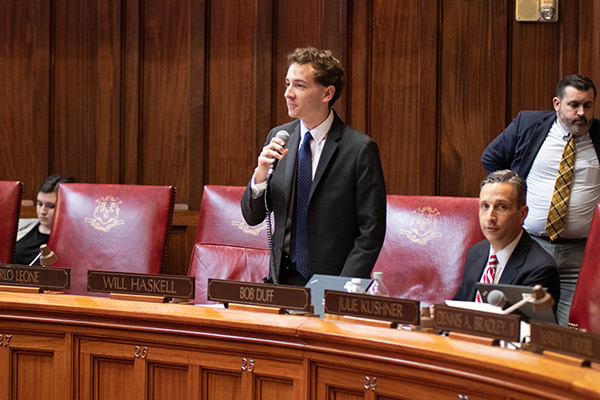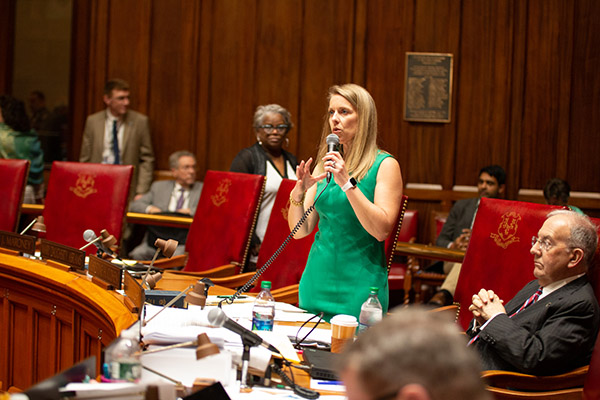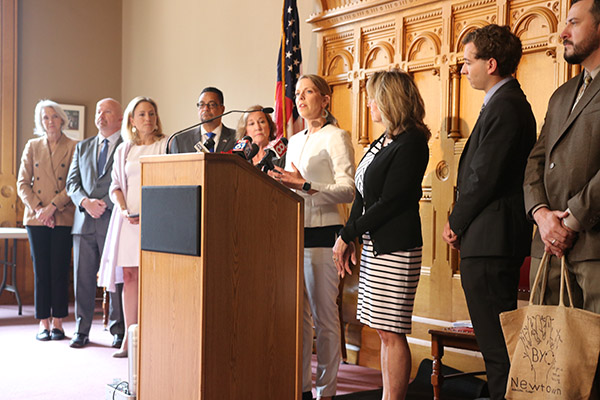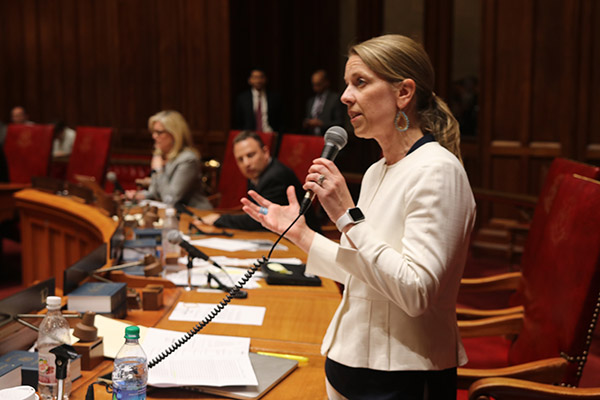Sen. Haskell Supports PTSD Coverage For Police And Firefighters, Pledges To Fight For EMS Workers

HARTFORD – The state Senate took the first step today toward providing Connecticut’s police officers and firefighters with workers’ compensation coverage for the emotional and mental injuries they suffer on the job after witnessing some particularly horrible trauma.
Senate Bill 164, “An Act Including Certain Mental or Emotional Impairments Within the Definition of Personal Injury Under the Workers’ Compensation Statutes,” passed the Senate today on a 35-0 vote; it now heads to the House of Representatives for consideration.
The bill essentially expands the definition of ‘personal injury’ in state workers’ compensation laws to include so-called “mental-mental” injuries (a mental injury without an accompanying physical injury), as of July 1, 2019. The new provisions are expected to cover an estimated 36,000 first responders, including 26,800 firefighters, 8,180 police officers, 958 state police officers and 140 parole officers.
“This bill extends a helping hand to those who answer our call for help time and time again,” said Sen. Haskell. “When a first responder breaks an arm on the job, we have his or her back. Why isn’t the same true when something they see in the job leaves them feeling isolated, trapped and depressed? The only difference between a physical illness and a mental illness is that one is more easily diagnosed.”
“I was proud to support the legislation,” Sen. Haskell continued, “which includes an amendment that will mandate a study of the feasibility of expanding these protections to EMS workers. EMS workers face tremendous challenges on the job – challenges to which I can’t begin to relate. Over the last few days, I’ve heard the stories of children who took their final breath in the back of an ambulance. I’ve listened to EMS workers describe the stories that stay with them, that keep them up at night, that cause them to step away from the job. I’m ready to roll up my sleeves in the next legislative session and fight to support these valuable members of our community.”
SB 164 allows workers’ compensation benefits to be paid to police, volunteer or full-time firefighters, and parole officers diagnosed with PTS and who experience one of six traumatic events while on the job. With a last-minute amendment, the bill also requires the Labor and Public Employees Committee to study the cost and impact of adding emergency medical services personnel and certain Department of Correction Employees to the list of potentially covered employees.



